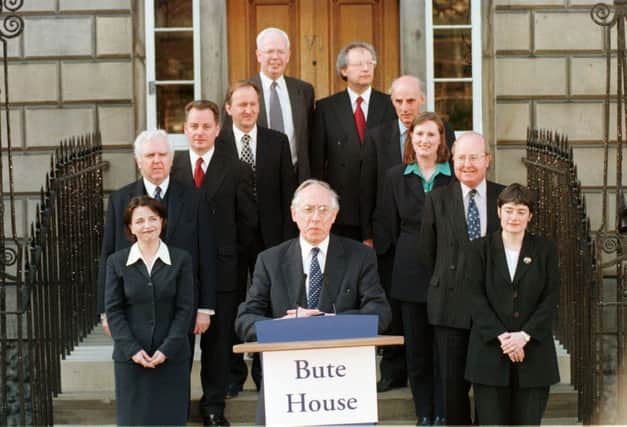Ministers battled ‘hysteria’ over bid to scrap Section 28


Previously confidential papers reveal how the then cabinet of the Labour/Lib Dem coalition at Holyrood felt it had to take decisive action to move the debate away from “hysterical” and “extremely damaging” coverage of its proposals to repeal the law banning the “promotion” of homosexuality in schools.
They outline ministers’ fears from the time that the “highly vocal” campaign to maintain the status quo could impact upon the Executive’s wider social policy agenda.The law, part of the Local Government Act 1988, stipulated local authorities should “not intentionally promote homosexuality” or “promote the teaching in any maintained school of the acceptability of homosexuality as a pretended family relationship”. It was repealed by the Scottish Parliament in June 2000 after a heated campaign from both sides.
Advertisement
Hide AdAdvertisement
Hide AdDocuments just released by National Records of Scotland under the 15-year rule chart the then Scottish cabinet’s evolving approaches to the issue from late 1999 onwards in the face of strong opposition from some quarters.
Minutes from a cabinet meeting on 18 January, 2000 show how there was believed to be a “rough balance” between members of the public in favour and against the plans to abolish the law. It was proposed during the meeting that ministers take a “non-provocative stance”.
But just one week later, first minister Donald Dewar noted the “increasingly hysterical tone of the media coverage” of the issue, further minutes record.“The timescale for producing new guidelines intended to protect children from inappropriate teaching had assumed critical importance in the debate,” they state.
They go on: “In discussion the following points were made: Current coverage of the issue was extremely damaging and the executive should move quickly to counter it… The executive needed to take decisive action in order to move the debate forward. It needed to express its position in clear, straightforward terms that would be meaningful to worried parents.
“The key was to find a way of appealing to the innate common sense of the Scottish public. Parents should be reassured by the safeguards proposed and the knowledge that if they had concern about a teacher’s behaviour or material being used in schools, they could take action.”
The minutes went on: “There was a risk that a wider agenda could emerge from the campaign, attacking social policies on matter such as health promotion, family law reform and social inclusion. The possible impact of the current campaign on the wider social policy agenda should be kept under close review.”